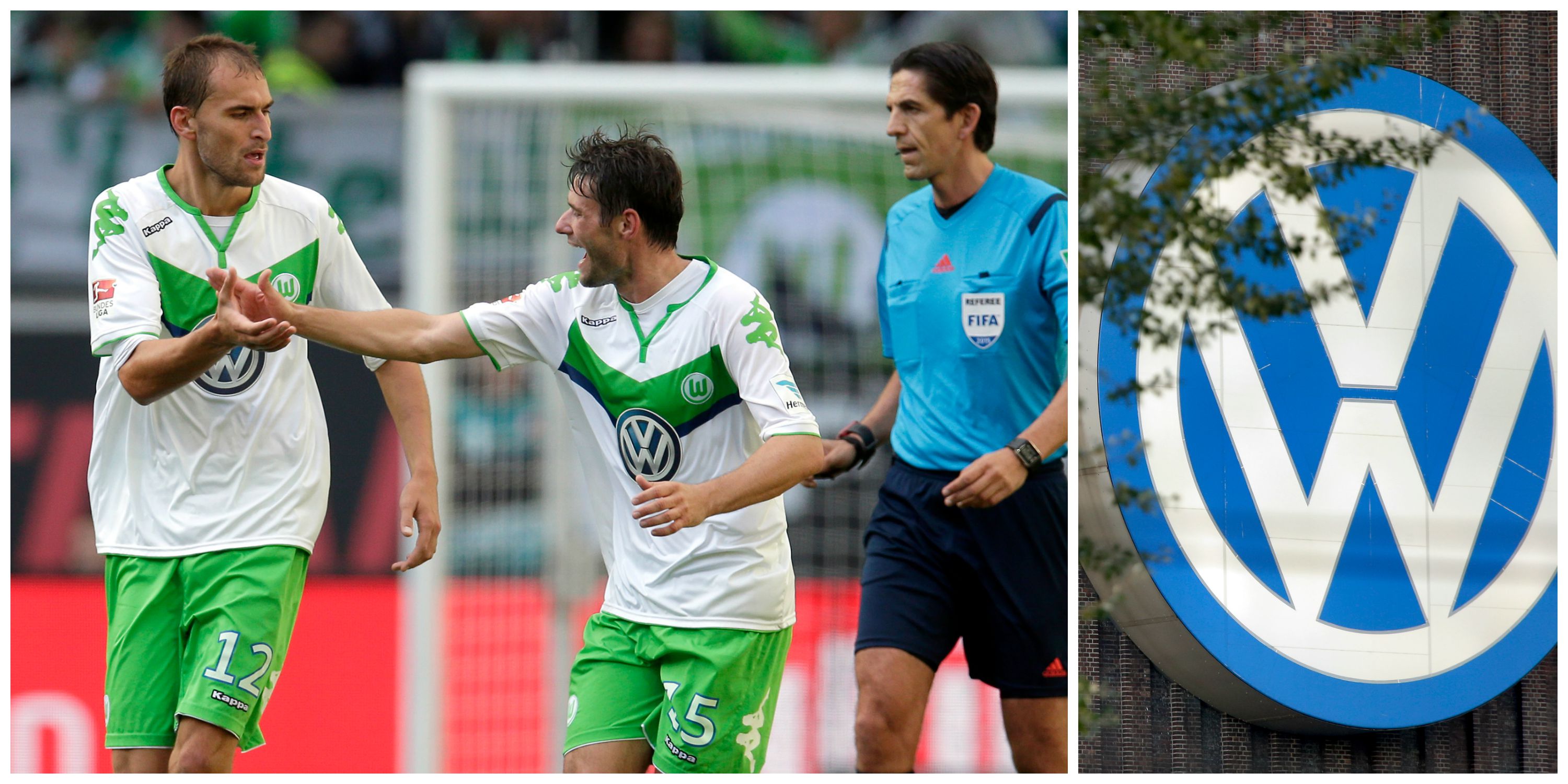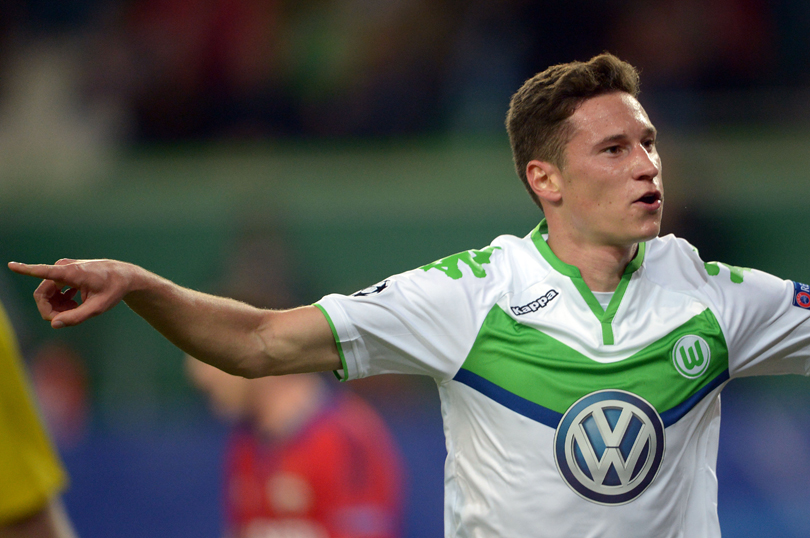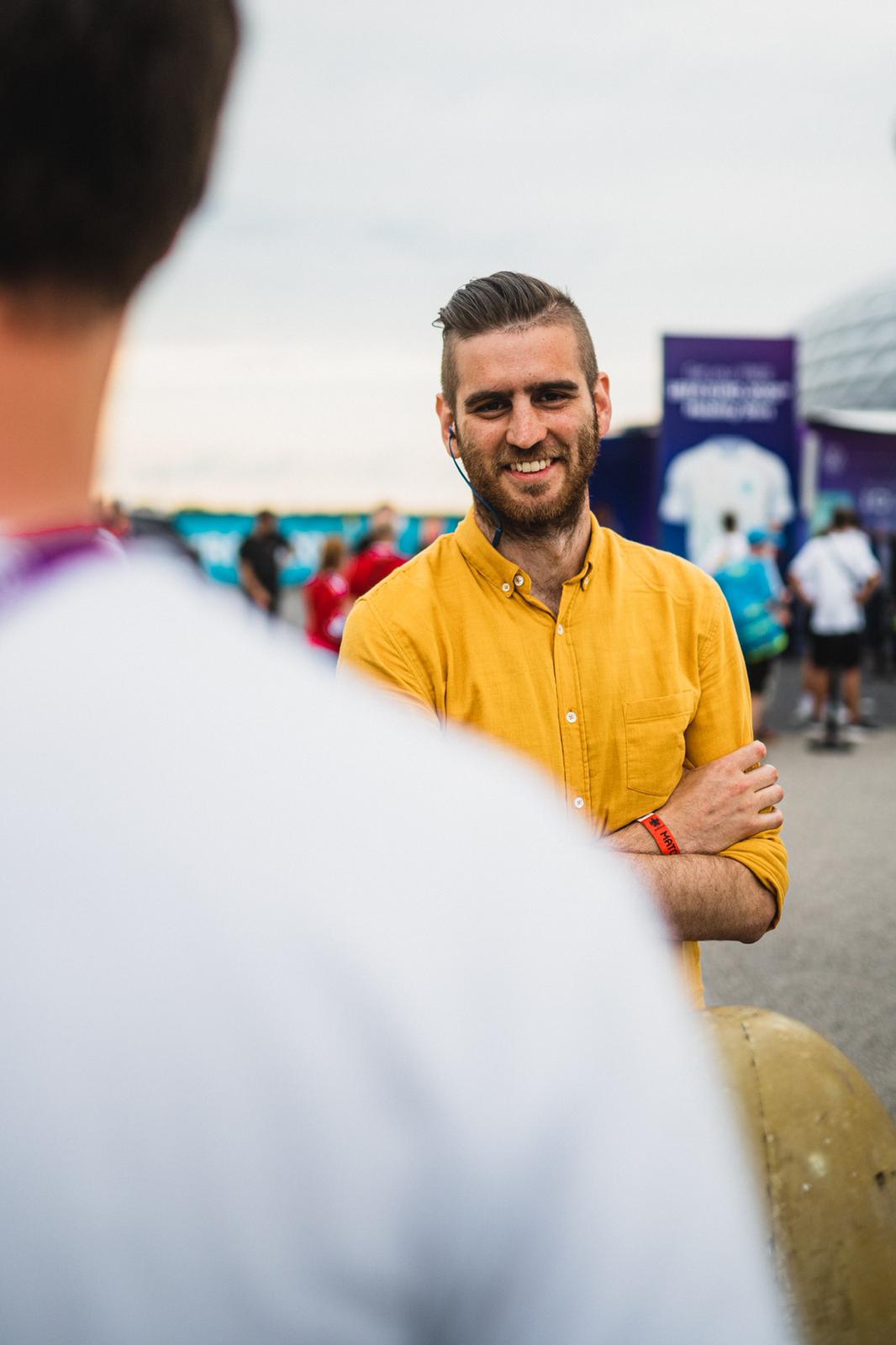Wolfsburg: Man United's Volkswagen-backed foe Germany loves to hate
The Red Devils might just know how their Bundesliga rivals feel. Jonathan Harding offers the lowdown ahead of their Champions League tussle...

Wolfsburg were formed in 1945 in a city born solely from Adolf Hitler’s financial backing of the “people’s car”
Who are they?
Without the much-revered history of a fallen giant like Kaiserslautern or Nuremberg, Wolfsburg have been an easy target for Bundesliga purists. As long-time FFT contributor Uli Hesse has written: “Many German fans openly resent Wolfsburg because they are one of only two clubs in the professional game to be wholly owned by a company, and are thus considered an aberration.”
Formed in 1945 in a city born solely from Adolf Hitler’s financial backing of the “people’s car” (Volkswagen), Wolfsburg’s football club took a while to find its top gear: for 12 long years after the founding of the Bundesliga, they played second-division football.
The Wolves were then relegated in 1977 and endured 15 years of amateur football before Volkswagen employed Peter Pander to improve the situation. In 1992 they were back in the second tier and two years later even enjoyed a cup run that ended in final defeat to Borussia Monchengladbach.
Finally, promotion to the Bundesliga was achieved in 1997. It wasn't really until 2008/09 that everything changed, however, and it all started with the arrival of Felix Magath two years earlier.
His infamous training regimes earned him the nickname “Quälix” (Qual is the German word for torture, agony) and his transfer window methods resembled more of a bingo card than a manager’s recruitment strategy. Nevertheless, in 2009 it all came together and Wolfsburg won the league. After a mixed first half of the season, Edin Dzeko, Grafite and Zvjezdan Misimovic blew the competition away. A 5-1 win in Munich put Wolfsburg on the way to a title that separates them from a few of the current chasing pack.
In 2012, the appointments of Klaus Allofs (sporting director) and Dieter Hecking stopped the ruthless, unplanned march towards repeating 2009's success. Allofs has been able to do what he did at Werder Bremen but with a bigger budget; Hecking has provided the calm demeanour the club has long needed.
Get FourFourTwo Newsletter
The best features, fun and footballing quizzes, straight to your inbox every week.
Strengths
Wolfsburg remain strong on the break. With newly signed Schalke star Julian Draxler and summer arrival Max Kruse linking up impressively, they have retained their ability to quickly turn defence into attack. Both have shown fantastic movement off the ball, and if they get into the groove, along with the impressive Daniel Caligiuri, then the entire team tends to follow suit. From set-pieces, Wolfsburg pose a notable threat.
With Brazilian centre-back Naldo and striker Bas Dost as big targets, and left-back Ricardo Rodriguez pretty much a sure thing from the penalty spot, giving away anything silly will likely prove costly. Despite grumblings of a disagreement with Hecking, Dost has the edge on former Arsenal striker Nicklas Bendtner. The Dutchman now has five goals in seven games, and when in the game he’s a handful.
0:19 for deadly Dost
Weaknesses
Once the Kevin De Bruyne saga finally came to an end, there was real concern about how Wolfsburg would win games without their Belgian assist machine. Ten games into the new season, however, they’ve only lost once. And while there is no replacing the kind of dominance the Belgian displayed, the side has dealt with his departure quicker than expected. While one exit was digested, a new arrival is still causing some discomfort – Bayern Munich defender Dante appears to have had the reverse effect for the Wolves’ defence since signing. So far, it has been clear why Bayern were happy to let him leave the Allianz Arena.
Promising German defender Robin Knoche (long-term ankle injury) has been missed, perhaps by no one more than Naldo, and Timm Klose has been unfairly forgotten. Away from individual concerns, the collective crumbling against Bayern was a big worry. Champions League teams will look to exploit that.

The game plan
They’ve had to readjust somewhat post-De Bruyne and different starting XIs have not been uncommon, but with Draxler and Kruse impressing in a 4-1-4-1 system, the focus remains on quick transitional play.
The pair operate in the middle of the midfield four, leaving the defensive midfielder to do most of the heavy lifting. Hecking labelled the pair “a double 10” but their link-up play has also left the lone striker isolated.
Against Bayern Munich they reverted to 4-4-2 with a pair of holding midfielders, Draxler on the wing and Kruse playing off Dost. That worked for the first half, but then came the defensive collapse.
In short, Wolfsburg are still adjusting after last season, but the aim is clearly to become a more devastating unit than just a team with a devastating weapon.

Key player
Luiz Gustavo. The Brazilian defensive midfielder adds stability and manager Hecking has already hinted at the issue of his absence through a knee injury. Without him, Wolfsburg are a weaker side.
Early signs suggest that Draxler is going to fit in just fine at Wolfsburg, but to suggest any more at this stage would be folly. Caligiuri has impressed early on, as have the free-roaming Kruse and goal-getting Dost.
Famous for…
'Das Auto' created the city, although perhaps it’s best to omit any mention of Volkswagen at the moment. More positive headlines can be found reading about Wolfsburg’s women’s team. Widely considered one of the best in the world, they are putting even more pressure on the men’s outfit to up their game after back-to-back Bundesliga and Champions League doubles in 2013 and 2014.
Luiz Gustavo adds stability and manager Hecking has already hinted at the issue of his absence. Without him, Wolfsburg are a weaker side
Club legend
Some big names have played in the green and white. Brian McBride, Stefan Effenberg and Edin Dzeko are all in the club’s history books, but it’s difficult for such a young club to have a true legend. Brazilian striker Grafite is pretty close after 28 goals in the title-winning season meant he was named Germany’s player of the year in 2009. Current goalkeeper Diego Benaglio and his 281 appearances make a convincing claim, though.
Man United vs Wolfsburg LIVE ANALYSIS with Stats Zone
STATS ZONE Free on iOS • Free on Android
Jonathan Harding is a freelance journalist based in Germany. He writes predominantly for DW, Germany's international broadcaster, but has also featured in The Athletic, ESPN and The Times. He has been covering German football and the German national team for over a decade and has written two books, one on coaching in Germany and the other on holistic development in sport.

